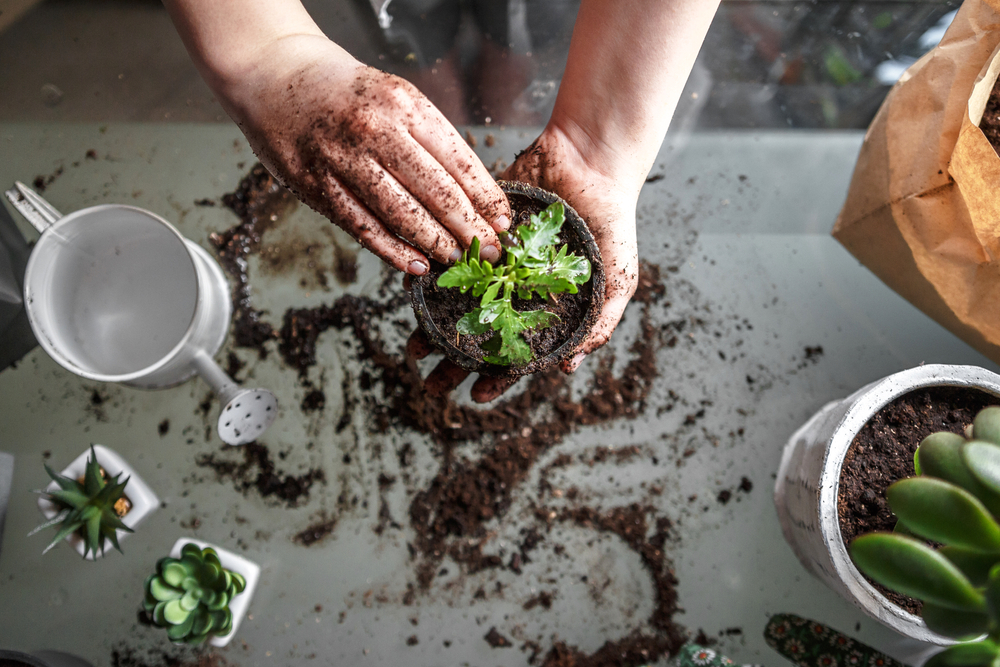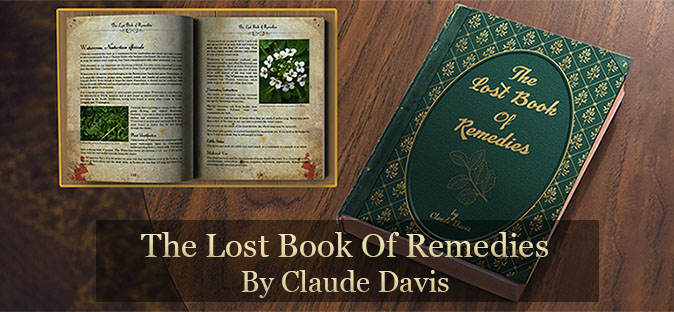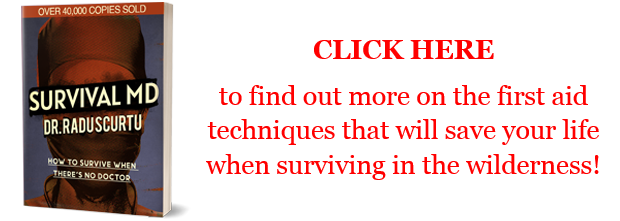[ad_1]
Though some remain skeptical of holistic medicine, for centuries, various cultures and people have successfully used plants to improve their health and heal their bodies. Of course, modern medicine is a wonder and can do incredible things, but it can be helpful to remember that plants are also a gift to us from nature, and they too can do some amazing things.
Whether you are looking to live a more holistic lifestyle or seeking to balance modern medicine with holistic medicine, growing certain plants in your garden is a great place to start. Having holistic plants in your garden is also helpful from a survival standpoint.
Today, we often rely heavily on outside sources to survive — and this is understandable considering the fact that we have modern advancements that keep us from having to fend for ourselves and live off the land. Still, learning how to grow your own food and medicine is not only crucial for your health, but it is an essential skill that can help you survive on your own, should anything happen.
The Benefits of Growing Holistic Plants
Taking a more holistic approach to your health and survival can be beneficial in many ways. Overall, holistic medicine seeks to improve health using a whole-body approach. This means it works to target certain issues or improve overall health in general by healing the body and the mind at the source or root of the problem. In contrast, modern medicine often only seeks to treat symptoms rather than targeting the underlying issue.
While modern medicine can still be incredibly useful and even necessary, holistic medicine can complement modern medicine by getting more thoroughly at the root of the problem. It can rebalance your system and help improve all bodily functions to ensure you are healthier as a whole.
Planting a garden with holistic plants can also empower you to take control of your own health and well-being rather than relying on others. There are also no harmful substances or chemicals in holistic plants, and it’s more affordable. Many minor ailments can easily be cured using holistic medicine, which you can take care of on your own rather than having to pay to go to the doctor each time you have a small problem.
Some plants can even help with first-aid, should you sustain minor injuries. Holistic plants have even been known to help cure or prevent more serious conditions like cancer, skin diseases, heart disease, and high blood pressure.
Gut health can also be improved using a plant-based diet. Your gut microbiome can easily get disrupted when you are not properly taking care of your health and watching what foods you eat or chemicals you ingest from certain medicines. However, a holistic approach using certain plants can help to better control the bacteria in your gut.
It’s important to talk about gut health specifically in relation to the benefits of holistic plants because when you have poor gut health, it can make you more susceptible to other illnesses and diseases, like COVID. Thus, using holistic plants to specifically heal and improve your gut microbiome is incredibly beneficial for your overall health and survival.
Top Plants to Grown in Your Garden for Holistic Health
There are numerous types of plants that have been used for centuries to heal the body and the mind in various ways — and though holistic medicine may seem intimidating, you can easily learn about and grow your own medicinal plants and herbs at home.
What you grow is ultimately up to you. You can grow various plants to help with a variety of health concerns, or you can grow things that are more specific to your health needs. If you still aren’t sure what to grow, the list below can help get you started.
Some of the best healing plants you can grow and use for your holistic health include:
Aloe Vera
The Aloe Vera plant is technically an indoor plant — so it’s not something you would grow outside in your garden. Still, it’s worth mentioning because it’s one of the easiest plants to get ahold of, and it has numerous benefits and uses. Most commonly, aloe is used for after-sun care, but it can also be used to treat other types of burns, cuts, acne, anal fissures, and minor skin infections. It can also be used to improve oral hygiene and can be made into a juice that can help heal the gut.
Chamomile
Chamomile is another highly common plant that has several benefits. Many consider it to be a cure-all remedy. Most often, people will use Chamomile for its relaxing properties anytime they are experiencing anxiety or at night before bed to help them sleep better. This herb can also be used for healing wounds, treating inflammation and skin irritations, and soothing diaper rash. Chamomile has also been used to help with the adverse side effects of radiation from cancer treatments.
Calendula
The calendula flower is particularly known for its bacteria inhibiting and anti-inflammatory properties. Topically, it can be applied to skin irritations, wounds, and burns. When ingested, it can help detoxify the body and heal the gut. It is often used for many digestive ailments, including gastritis, ulcers, and colitis. Calendula can also help cleanse the liver.
Ginger
Ginger is best known for aiding digestion, but it also has anti-inflammatory, antioxidant, and antiviral properties as well. People use ginger for nausea, joint pains, to enhance the digestive processes, to soothe a sore throat, and to fight illnesses and diseases such as the flu and the cold. Some even use it to reduce the risk of contracting cancer, diabetes, and asthma.
Peppermint
Peppermint is another plant that is commonly used to help fight nausea. However, it has many other benefits as well. It can be used as an antimicrobial and for antiseptic purposes and can also help soothe headaches, sore throat, cough, and colds.
Holy Basil
Basil isn’t only good for flavoring your food; it has a few medicinal uses as well. Holy basil can help lower blood sugar levels, fight inflammation and bacteria, and can be used to help soothe a cough. Additionally, people use this plant to treat diabetes, reduce fevers, soothe asthma, and ease digestive issues. The juice from holy basil can also be used to help with insect stings, ringworm, and other skin conditions.
Lavender
The lavender plant is most often used for its fragrance to create perfumes and other body products, but it can also be used for medicinal purposes. The scent can help treat depression, anxiety, stress, and insomnia. Topically, it can help ease itchy skin, especially on the scalp. Lavender also has antiviral and antibacterial properties and can also be used to help cure headaches and stimulate bile flow from the liver.
Garlic
Garlic, like basil, is primarily used to make food more flavorful, but this root is used all around the world for holistic medicinal purposes as well. Many individuals use garlic to reduce the risk of heart disease, fight inflammation, prevent cancer, and get rid of bacteria. Some even believe that garlic can lower blood pressure and cholesterol levels. Some compounds in garlic have also been known to help with various digestive issues and heal the gut.
Hawthorn
Hawthorn is less known than other medicinal plants, but it has been used for years to fight various ailments for holistic purposes. Hawthorn bark has astringent properties that can help fight fevers, it can be used as a diuretic, and as an antispasmodic. It can also help fight heart disease by helping treat cardiac weakness, spasms, and murmurs. Some people also use hawthorn as a sedative for their nervous system and to help balance blood pressure.

Tips for Planting a Holistic Garden
Just as you would with any other garden, there are things to consider before you start planting to ensure you have a good yield and don’t run into any issues. First and foremost, when growing anything in your yard, make sure it is safe for pets and local wildlife. Though many of the plants listed above are safe for humans, they can be incredibly toxic to animals. So make sure the garden is out of reach or has some sort of protective barrier around it to protect your plants and keep local wildlife and pets safe.
Second, make sure you have the right soil and climate for the holistic plants you choose. Many medicinal plants originate from other countries. That doesn’t mean they can’t grow in America, but if you want your plants to be healthy, you need to make sure you are planting them in the right soil, in the right climate, and at the right time of the year. Another essential gardening tip is to get the watering schedule figured out. Some plants are more sensitive than others, so you will need to be mindful not to over or underwater them.
Pest management might also be something to consider depending on where you live. Some regions or local areas have more problems with pests and insects than others. The last thing you want is to put a lot of time and effort into your holistic garden only to have it ruined by pests. There are various pest treatment options available. Try doing a local search to determine which ones might be an issue in your area and go from there.
Wrapping Up
Growing a garden in itself can be a very therapeutic experience for some people. So not only can a holistic garden help you stay healthy, but it can also be a good activity for your mental health as well — and it doesn’t have to be a big garden either. Gardens come in all shapes and sizes and can be customized to suit your needs and the space you have.
Disclaimer: The content of this book is for informational purposes only and is not intended to diagnose, treat, cure, or prevent any condition or disease. You understand that this book is not intended as a substitute for consultation with a licensed practitioner. Please consult with your own physician or healthcare specialist regarding the suggestions and recommendations made in this book. The use of this book implies your acceptance of this disclaimer. The publisher and the author make no guarantees concerning the level of success you may experience by following the advice and strategies contained in this book, and you accept the risk that results will differ for each individual.
[ad_2]
Source link
Get more stuff like this
in your inbox
Don't Be Left Unprepared
Thank you for subscribing.
Something went wrong.







